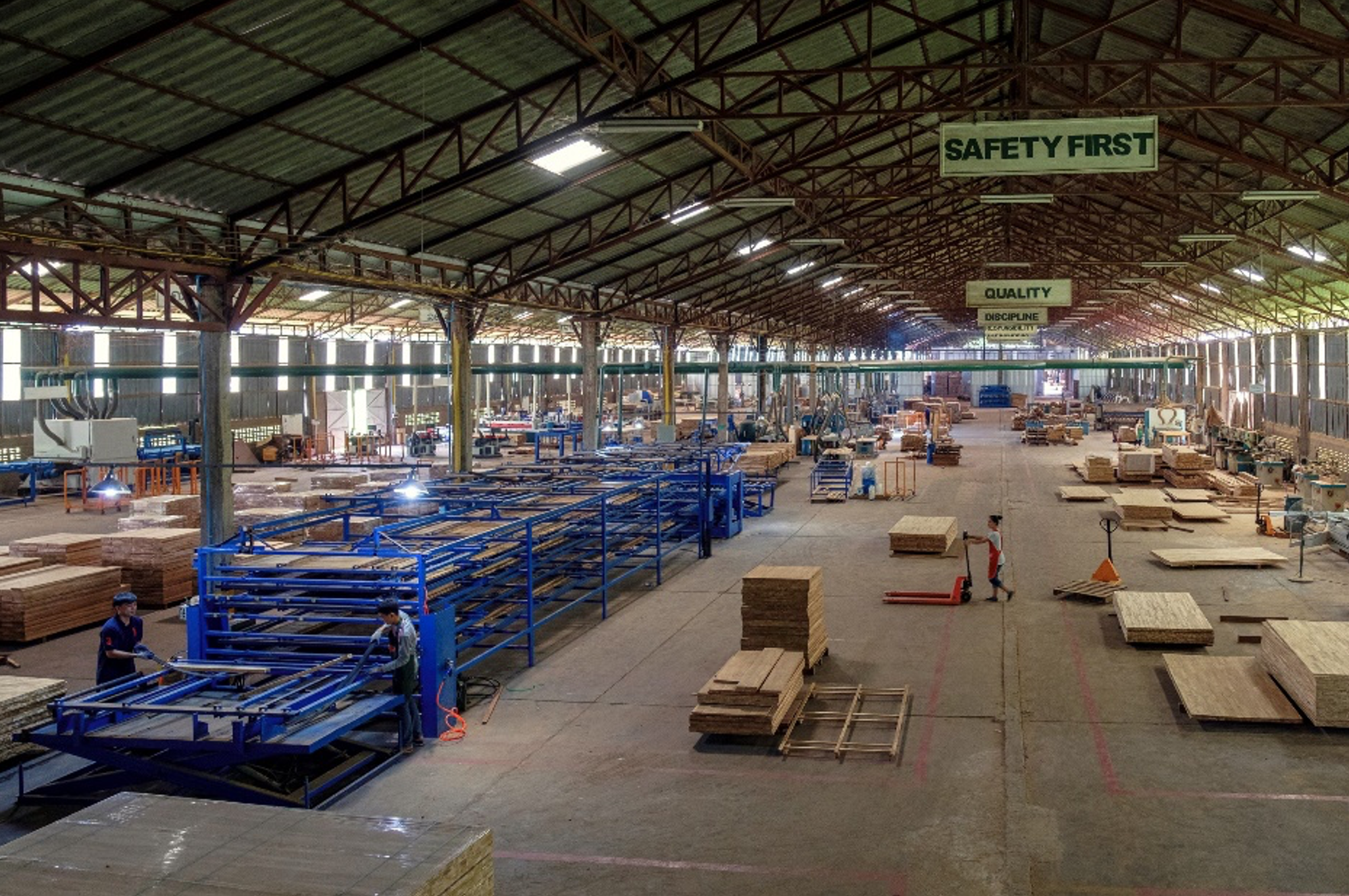New MOIC decision aimed at managing and monitoring national timber input and output
 GIZ/ Bart Verweij / Production flow and its critical control point at timber processing factory</em<
GIZ/ Bart Verweij / Production flow and its critical control point at timber processing factory</em<
The Lao Ministry of Industry and Commerce (MOIC) has approved a decision on the management and monitoring of timber input and output to strengthen the control of the national timber supply chain at the premises of operators.
The main objectives of this regulation include ensuring the legality of timber sources and preventing the mixing of illegal timber with legal timber in the supply chain of timber processing factories and timber traders by clearly defining principles and rules for traceability of timber, right from processing to sale in domestic markets or points of export.
The process of developing the regulation was aimed at ensuring enforcement with least negative impact on the industry. It also sought to establish if existing guidelines and training materials are sufficient for operators and government officials to carry out successful implementation.
The MOIC conducted a trial test in the southern province Attapeu before the decision was enforced, to ensure that the requirements of the decision are appropriate to the capacities of the different factories in ensuring tracing of timber in the production and the capacity of government authorities for inspection and data management. The trial test was conducted with technical and financial support from the German Development Cooperation project “Protection and Sustainable Use of Forest Ecosystems and Biodiversity”, which is being implemented by the Deutsche Gesellschaft fuer Internationale Zusammenarbeit (GIZ) GmbH.
This decision could be one of the effective tools to support the implementation of the national TLAS (Timber Legality Assurance System), especially for managing and declaring production by the private sector.
In the past, Laos has been an important source of timber for the Vietnamese market. Yet, most of the timber originated from unknown sources, often related to illegal logging. This led to a timber export ban in 2016, which only allowed the export of finished products.
The Lao Prime Minister’s Decree No 15 in this regard triggered and is still triggering major changes in the timber processing industry of Laos. It has also strengthened legal compliance and law enforcement by the government.
The legal framework for supply chain control and verification is still weak, but the Forest Law Enforcement, Governance and Trade Process for Voluntary Partnership Agreement (FLEGT-VPA) process has initiated several legal reforms to improve legal compliance and prevent exports of illicit timber products.
Besides, Laos has committed itself to developing a TLAS based on the new forest law, which is designed to ensure that timber and timber products within the country have been harvested and processed.

